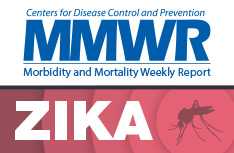What to know: If your doctor suspects microcephaly during pregnancy
Care for Babies Born with Birth Defects Related to Congenital Zika Syndrome
On This Page
Zika infection during pregnancy can lead to conditions in the baby called congenital Zika syndrome. A baby with congenital Zika syndrome might have one or more of the conditions listed below.
- Smaller than expected head size, called microcephaly
- Problems with brain development
- Feeding problems, such as difficulty swallowing
- Hearing loss
- Seizures
- Vision problems
- A problem with joint movement, called contractures
- Too much muscle tone restricting body movement soon after birth
We are still learning about the effects of Zika infection during pregnancy. Babies affected by Zika may have lasting special needs. Some of the conditions listed above can lead to problems with a child’s progress in moving, learning, speaking, and playing, called “developmental delay.”
Your baby may need additional exams and tests from various medical specialists, some of which may occur before your newborn goes home from the hospital. Working together with your baby’s primary healthcare provider and others on the medical team helps ensure that your baby’s health issues are addressed as soon as possible and you fully understand the recommended exams, tests, and therapies.
This webpage describes what to expect in the newborn period. It also discusses ways in which parents can work with their child’s pediatrician to manage care, including identifying necessary medical specialists and coordinating care. It describes how family and supportive services can help parents and caregivers face challenges that might arise.
Talk with Your Baby’s Pediatrician about Tests and Screenings Done Shortly after Birth and in the First Year of Life
CDC has developed guidance for healthcare providers treating babies with congenital Zika syndrome. The tests and screenings your newborn will likely receive before leaving the hospital include the following:
- A comprehensive physical exam. Your baby’s healthcare provider will take measurements of your baby’s weight, length, and head circumference (the distance around your baby’s head). Your baby’s skin, head and neck, heart, lungs, abdomen, genitals, muscles, bones, and alertness and responsiveness will also be examined.
- A neurologic exam. This will help assess your baby’s brain functioning as it affects alertness and responses to the environment, general hearing and vision, movements of the arms and legs, muscle tone, and suck and swallow reflexes. The provider will also check your baby’s ability to move, grab things, and his or her reflexes.
- An ophthalmology (eye) exam. Zika virus can cause damage to your baby’s eye that could affect his or her vision. An ophthalmologist (eye doctor) may use special equipment to look carefully at your baby’s eye to examine its structure and check for any abnormalities. Your baby’s pupils may need to be dilated with eye drops so the doctor can get a better look inside the eye.
- A head ultrasound to check your baby’s head and brain development. In addition to measuring around your baby’s head during the physical exam, your baby’s healthcare provider may also do a head ultrasound (using a machine that takes pictures of your baby’s brain). Sometimes, your baby will be referred to a specialist to have more advanced pictures, like magnetic resonance images (MRI), taken of his or her brain. These tests and physical exams will help inform your medical team if your baby may have any problems with brain development.
- A hearing test. Your baby’s healthcare provider may do an auditory brainstem response (ABR) test during the first hospital stay or soon after you leave the hospital. This is a special kind of hearing test that checks the brain’s response to sound. Small, painless stickers called “electrodes” connected to a computer will be placed on your baby’s head. Your baby will be given earphones, and as sounds are made, the electrodes will send the computer information about how your baby’s brain responds.
- A test for Zika virus infection. Your baby’s healthcare provider may take a small sample of your baby’s blood and urine. A negative test result doesn’t necessarily mean that your baby wasn’t infected with Zika, but a positive test could confirm Zika virus infection and help your baby’s healthcare provider make decisions about how best to care for your baby.
- Other blood tests. Your baby’s blood may be tested to check for signs of infection and to see how his or her liver and kidneys are functioning. Within the first month of life, your baby’s blood may also be tested to see how his or her thyroid is functioning.
These tests may be repeated multiple times in the first year of life. Your baby should also have well-baby visits according to the American Academy of Pediatrics Schedule of Well-Child Care Visits.
If there are any abnormal results from your baby’s tests and screenings, the healthcare provider may refer you to a specialist. A specialist is someone who has completed advanced education and training in a specific area of health or medicine. The specialist may order other tests that help determine whether your baby has conditions that frequently occur with congenital Zika virus syndrome or medical conditions caused by another congenital infection.
For more information about CDC’s testing recommendations for babies with congenital Zika syndrome, see our Roadmap for Parents of Babies with Congenital Zika Syndrome [PDF – 251 KB].
Work with Your Baby’s Pediatrician to Identify Necessary Medical Specialists
Your baby’s pediatrician may recommend that he or she be seen by one or more of the following types of specialists.
Zika Care Connect Can Help
Zika Care Connect can help you find necessary medical specialists to care for a baby affected by Zika. Click here to learn more.
- A neurologist (nerves, spinal cord, and brain specialist) to identify developmental or neurologic problems and determine appropriate treatment for conditions such as seizures.
- An ophthalmologist (medical eye specialist) to conduct a full eye exam to check for problems that may affect vision.
- An endocrinologist (hormone and gland specialist) to diagnosis and manage thyroid and other hormone functions.
- An orthopedist (musculoskeletal specialist) to diagnose and manage conditions affecting the function of the bones and muscles.
- A physical therapist or physiatrist (physical rehabilitation specialists) to manage neurologic or muscular conditions.
- A pulmonologist (lung specialist) or otolaryngologist (ear, nose, and throat specialist) to diagnose and manage conditions affecting breathing.
- A lactation specialist, nutritionist, gastroenterologist, or speech or occupational therapist to manage any feeding problems, like difficulty swallowing.
Some specialists may be hard to find. Your baby’s healthcare provider may consider referring him or her to a healthcare facility with specialists and subspecialists who focus on treating babies and children with developmental issues.
If you live in an area without access to the specialist(s) your baby’s pediatrician has recommended, you may want to find transportation help.
- Contact your social worker, community health worker, nonprofit organization, or local government office to see if they are able to provide transportation assistance. If you are not sure where to start, talk to your child’s doctors or nurses or speak with your health insurance provider to see if they can connect you with a social worker.
- Check with your health insurance provider about options for transportation assistance, such as shuttles or reimbursements for costs of traveling to and from doctor appointments.
- Coordinate with friends, family, or community members to help with transportation.
Remember: The earlier you learn about what options are available for your baby’s health care, the more you’ll be able to make the best decisions regarding his or her care.
Coordinate Care with Your Baby’s Primary Healthcare Provider
Babies affected by Zika may have lasting special needs. Choosing a reliable pediatrician or pediatric healthcare provider to lead the medical care of your child is the first step in addressing your child’s healthcare needs. Working together with your pediatrician to manage your baby’s care can assure that care is coordinated and centered on his or her needs.
Listed below are ways to help make sure care for your child is coordinated.
- Ask questions. Talk to your baby’s pediatrician about any questions and concerns that you have about your child’s care. You may find it helpful to write down the questions and the answers that you get. Some important questions are
- How often should we visit the pediatrician?
- What specialists do you recommend for my child to see?
- How do I choose the right specialist for my child?
- What kinds of special care will my child need at home, child care, or school?
- Can you connect me with an early intervention specialist?
- How can I find out about support groups that have parents with similar concerns?
- Work with your insurance provider. Ask your health insurance provider about your coverage for the types of healthcare providers your baby needs.
- Work with an early intervention specialist. An early intervention specialist is a healthcare provider with specialized knowledge about early intervention services for children with special healthcare needs. Early intervention services (from birth to 3 years of age) include therapy to help the child talk, walk, and interact with others. These services can have a significant effect on a baby’s ability to learn new skills. The early intervention specialist can help you find services to support and optimize your baby’s development. Depending on the policies in your state, your baby may be eligible to receive free or low cost early intervention services. These are physical, cognitive, and social/emotional resources and support systems.
- Use a Care Plan. It may not be necessary for your baby to see all of these specialists. Because there are still facts about the effects of Zika virus infection that we do not yet know, it’s important to get a complete picture of your baby’s health to get the care they need. The earlier doctors can detect problems in your baby’s development, the better prepared your family and your baby’s medical team can be to make the best decisions for your baby. Follow your pediatrician’s guidance and keep track of the care your baby is receiving with a care plan.
Seek Out Family and Supportive Services
A diagnosis of congenital Zika syndrome can feel overwhelming. Talking to someone about your challenges, like a friend or a professional, may help. Hospitals often have a social worker who can counsel and connect you with additional therapeutic resources. Your health insurance may cover therapy services, and some community organizations may offer these services for free.
It might be helpful to talk with other people who have family members affected by birth defects. Other people might be able to address some concerns and questions you have. Often, they can give you information about resources and share what worked best for them. Talking with other people may also provide emotional support and hope for the future. Ask your baby’s healthcare providers (doctors, nurses, social worker, and other care team staff) if they can connect you to any support groups.
CDC and other organizations have resources on family and support services.
Related Resources
What to know: If your baby was born with congenital Zika syndrome
What to know: If your baby may have been affected by Zika but has no related health conditions at birth
For Parents: Roadmap for Parents of Babies with Congenital Zika Syndrome
For Parents: Roadmap for Parents of Babies Infected with Zika Before Birth Who Appear Healthy
- Page last reviewed: June 13, 2017
- Page last updated: May 13, 2017
- Content source:





 ShareCompartir
ShareCompartir